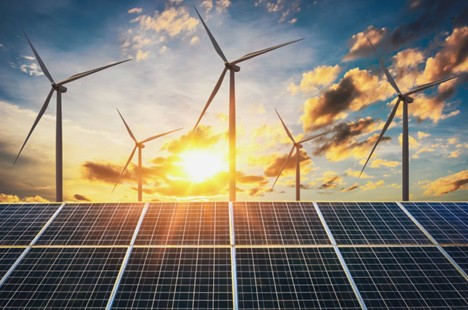Why is Renewable Energy Important?

(Source: www.oneearth.org)
What is renewable energy?
Renewable energy is energy obtained from natural sources that can regenerate within a time frame shorter than a human lifespan, while also avoiding the exhaustion of the planet’s resources.
The resources available worldwide include sunlight, wind, rain, tides, waves, biomass, and the thermal energy found within the earth’s crust. These energy sources are renewable and limitless, and they produce lower greenhouse gas emissions while reducing environmental and social effects.
Renewable energy comes from natural resources that can replenish themselves more quickly than a human lifespan, ensuring that the earth’s resources remain intact. These resources, including sunlight, wind, precipitation, tides, ocean waves, biomass, and the geothermal energy contained within the earth, exist in diverse forms throughout the planet. Such energy sources are not only sustainable and abundant but also generate lower levels of greenhouse gases, thereby mitigating environmental and social impacts.
The primary energy sources fueling our economies and societies today are fossil fuels, specifically oil, coal, and gas. These resources cannot regenerate quickly enough to match our consumption, and their extraction and production release greenhouse gases and pollutants that endanger human health.
The transition to renewable energy has been prompted by various global challenges – escalating climate change, soaring fossil fuel costs, economic instability, health impacts, and an urgent energy crisis.
Renewable energy sources have evolved to be more advanced and less expensive over the years, and they have been expanding at a faster rate than all other energy types since 2011. In 2023, renewable energy achieved another milestone with the addition of 536 gigawatts (GW) of capacity. Currently, renewables represent nearly 13% of our overall energy consumption. The increasing demand for electricity in sectors such as agriculture, construction, industry, and transportation has also facilitated a higher integration of renewable sources, with 30% of our electricity now generated from renewable energy.
There is a general agreement on the necessity to transition from fossil fuels to renewable energy; however, renewables encounter considerable obstacles and unfair competition due to heavily subsidized fossil fuels. Consequently, the global dependence on fossil fuels for energy continues, accounting for 79% of total energy consumption in 2022. Additionally, pollution resulting from fossil fuels has surged to unprecedented levels (Ren, 2024).
Key benefits of renewable energy for people and the planet
- More inclusive
Renewable energy encourages inclusion by distributing energy generation, creating chances for various communities to participate and take ownership. Projects that are owned by the community facilitate local involvement and economic empowerment, supporting social equity.
Access to effective and dependable renewable energy can also yield considerable advantages in terms of climate, development, and equity. Shifts towards clean energy align with sustainable economic growth and the empowerment of women, but it is essential to have appropriate policies in place to secure successful outcomes. This is supported by the IEA’s Our Energy Future: The Global Commission on People-Centred Clean Energy Transitions. Founded in 2021, the commission consists of 30 members and unites government leaders, ministers, and notable thinkers aiming to ensure that the advantages of clean energy technologies are accessible to all parts of society.
- Reduced carbon emissions and air pollution
Generating energy from renewable sources and shifting towards renewable energy is essential in addressing climate change, particularly in enhancing air quality and safeguarding public health. This is due to the substantial decrease in carbon emissions and air pollutants associated with energy production in this sector. Renewable energy options such as solar and wind power do not emit carbon during the electricity generation process. Conversely, fossil fuels like coal, oil, and gas are the primary contributors to global climate change, representing over 75% of global greenhouse gas emissions and nearly 90% of all carbon dioxide emissions.
- Job creation
The renewable energy sector has experienced significant growth in jobs focused on sustainability, yet the International Energy Agency (IEA) reports that the number of individuals obtaining degrees or certifications pertinent to energy jobs is lagging behind the rising demand. Dr. Fatih Birol, the Executive Director, stated: “The rapid progress we are observing in the transition to clean energy is generating millions of new employment opportunities globally – but we are unable to fill these positions swiftly enough. “It is essential for governments, industries, and educational institutions to establish programs that provide the skills required in the energy sector to match the increasing demand, especially for the manufacturing and construction of clean energy initiatives necessary to achieve our energy and climate objectives.” (Maya Derrick, 2024).
References:
Energy Digital. (2024). Top 10: Benefits of Renewable Energy. Retrieved from https://energydigital.com/top10/top-10-benefits-of-renewable-energy
REN21. (2024). Why is renewable energy important?. Retrieved from https://www.ren21.net/why-is-renewable-energy-important/




Comments :